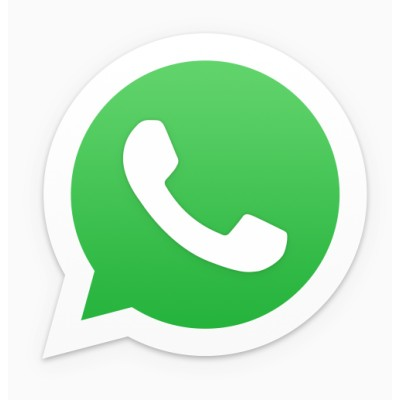Meta's Antitrust Trial: A Battle for the Digital Marketplace
April 16, 2025, 9:59 am

Location: United States, California, Menlo Park
Employees: 51-200
Founded date: 2009
Total raised: $500K

Location: United States, California, Menlo Park
Employees: 1001-5000
Founded date: 2010
Total raised: $40M

Location: United States, California, San Bruno
Employees: 10001+
Founded date: 2005
Total raised: $101.45M
The courtroom is a battlefield. On one side stands the Federal Trade Commission (FTC), armed with accusations of monopoly and anti-competitive practices. On the other, Meta Platforms Inc., a titan of social media, defending its empire. The stakes are high. The outcome could reshape the digital landscape.
The trial began on April 14, 2025, in Washington, D.C. Chief Judge James Boasberg presides over this pivotal case. The FTC argues that Meta's acquisitions of Instagram and WhatsApp were not just business moves; they were strategic strikes against competition. The agency claims these purchases stifled innovation and harmed consumers.
For over a decade, Meta has woven these platforms into its fabric. Now, the FTC seeks to unravel that tapestry. If successful, the breakup could erase hundreds of billions from Meta's market value. It would also send shockwaves through the tech industry, raising questions about how future mergers are evaluated.
The FTC's lead attorney, Daniel Matheson, opened the case with a historical perspective. He invoked a century-old American tradition of promoting competition. The message was clear: competition is the lifeblood of a healthy economy. Matheson accused Meta of breaking this sacred rule. He painted a picture of a company that chose acquisition over innovation.
Meta's defense is equally robust. The company argues that it faces fierce competition from various platforms. TikTok, Snapchat, YouTube, and others are in the ring, vying for users' attention. Meta claims that the FTC's view is too narrow. It insists that the social media landscape is diverse and dynamic.
The trial is expected to last about two months. Testimonies from high-profile figures like CEO Mark Zuckerberg and former executive Sheryl Sandberg will be pivotal. Their insights could illuminate Meta's strategy and intentions.
The FTC's case hinges on the concept of "killer acquisitions." Matheson argues that Meta's purchases of Instagram and WhatsApp were not just business decisions; they were calculated moves to eliminate competition. He cites internal communications, including emails from Zuckerberg, as evidence. One email allegedly describes the Instagram deal as a way to "neutralize a competitor."
The implications of this trial extend beyond Meta. A ruling in favor of the FTC could redefine how mergers are scrutinized. It could lead to stricter regulations in the tech sector. The government’s ability to police competition will be tested.
However, the FTC faces challenges. Judge Boasberg has already indicated that the commission's claims will undergo rigorous scrutiny. The legal landscape is complex. The definition of social media and Meta's dominance in that space will be critical.
Meta's defense team argues that the FTC had opportunities to challenge these acquisitions when they occurred. The agency approved the deals in 2012 and 2014. Critics question why the FTC is only now pursuing action.
The backdrop of this trial is a rapidly evolving tech landscape. Since 2019, the digital world has changed dramatically. Elon Musk's acquisition of Twitter, the rise of TikTok, and Meta's attempts to launch competing products have all shifted the dynamics.
The trial is not just about Meta. It’s about the future of digital communication. It’s about how we connect, share, and interact online. The outcome could influence how tech giants operate.
As the trial unfolds, the public watches closely. The implications are vast. A breakup of Meta could lead to a fragmented social media landscape. Users might find themselves navigating multiple platforms with different rules and experiences.
The FTC's argument rests on the premise that Meta's dominance has led to a decline in quality. Increased ads and weakened privacy protections are cited as evidence. Matheson argues that these changes harm consumers.
Meta counters that it continuously innovates. It claims to adapt to user needs and market demands. The company insists that competition drives its decisions.
This trial is a microcosm of a larger debate. It raises questions about the balance of power in the digital age. How much control should a single company have? What safeguards are necessary to protect consumers?
As the courtroom drama unfolds, the world holds its breath. The verdict will resonate far beyond the walls of the courthouse. It will shape the future of social media and the rules of engagement in the tech industry.
In the end, this trial is about more than just Meta. It’s about the principles of competition and innovation. It’s about ensuring that the digital marketplace remains vibrant and diverse. The outcome will echo through the corridors of power and influence the next generation of tech giants.
The gavel will fall, and the world will watch. The battle for the digital marketplace is just beginning.
The trial began on April 14, 2025, in Washington, D.C. Chief Judge James Boasberg presides over this pivotal case. The FTC argues that Meta's acquisitions of Instagram and WhatsApp were not just business moves; they were strategic strikes against competition. The agency claims these purchases stifled innovation and harmed consumers.
For over a decade, Meta has woven these platforms into its fabric. Now, the FTC seeks to unravel that tapestry. If successful, the breakup could erase hundreds of billions from Meta's market value. It would also send shockwaves through the tech industry, raising questions about how future mergers are evaluated.
The FTC's lead attorney, Daniel Matheson, opened the case with a historical perspective. He invoked a century-old American tradition of promoting competition. The message was clear: competition is the lifeblood of a healthy economy. Matheson accused Meta of breaking this sacred rule. He painted a picture of a company that chose acquisition over innovation.
Meta's defense is equally robust. The company argues that it faces fierce competition from various platforms. TikTok, Snapchat, YouTube, and others are in the ring, vying for users' attention. Meta claims that the FTC's view is too narrow. It insists that the social media landscape is diverse and dynamic.
The trial is expected to last about two months. Testimonies from high-profile figures like CEO Mark Zuckerberg and former executive Sheryl Sandberg will be pivotal. Their insights could illuminate Meta's strategy and intentions.
The FTC's case hinges on the concept of "killer acquisitions." Matheson argues that Meta's purchases of Instagram and WhatsApp were not just business decisions; they were calculated moves to eliminate competition. He cites internal communications, including emails from Zuckerberg, as evidence. One email allegedly describes the Instagram deal as a way to "neutralize a competitor."
The implications of this trial extend beyond Meta. A ruling in favor of the FTC could redefine how mergers are scrutinized. It could lead to stricter regulations in the tech sector. The government’s ability to police competition will be tested.
However, the FTC faces challenges. Judge Boasberg has already indicated that the commission's claims will undergo rigorous scrutiny. The legal landscape is complex. The definition of social media and Meta's dominance in that space will be critical.
Meta's defense team argues that the FTC had opportunities to challenge these acquisitions when they occurred. The agency approved the deals in 2012 and 2014. Critics question why the FTC is only now pursuing action.
The backdrop of this trial is a rapidly evolving tech landscape. Since 2019, the digital world has changed dramatically. Elon Musk's acquisition of Twitter, the rise of TikTok, and Meta's attempts to launch competing products have all shifted the dynamics.
The trial is not just about Meta. It’s about the future of digital communication. It’s about how we connect, share, and interact online. The outcome could influence how tech giants operate.
As the trial unfolds, the public watches closely. The implications are vast. A breakup of Meta could lead to a fragmented social media landscape. Users might find themselves navigating multiple platforms with different rules and experiences.
The FTC's argument rests on the premise that Meta's dominance has led to a decline in quality. Increased ads and weakened privacy protections are cited as evidence. Matheson argues that these changes harm consumers.
Meta counters that it continuously innovates. It claims to adapt to user needs and market demands. The company insists that competition drives its decisions.
This trial is a microcosm of a larger debate. It raises questions about the balance of power in the digital age. How much control should a single company have? What safeguards are necessary to protect consumers?
As the courtroom drama unfolds, the world holds its breath. The verdict will resonate far beyond the walls of the courthouse. It will shape the future of social media and the rules of engagement in the tech industry.
In the end, this trial is about more than just Meta. It’s about the principles of competition and innovation. It’s about ensuring that the digital marketplace remains vibrant and diverse. The outcome will echo through the corridors of power and influence the next generation of tech giants.
The gavel will fall, and the world will watch. The battle for the digital marketplace is just beginning.
